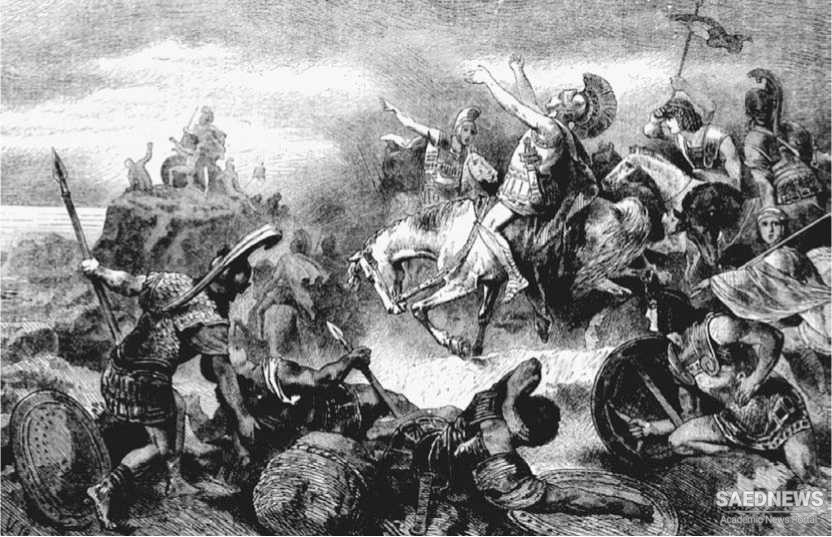So these arrived in Sardis for Cyrus. But observing this and holding the preparation to be too great for one against the Pisidians, Tissaphernes went to the King as quickly as he could with about five hundred cavalry troops. And when the King heard from Tissaphernes of Cyrus’s expedition, he began making counterpreparations. Cyrus set out from Sardis with those I mentioned, and he marched three stages, twenty-two parasangs, through Lydia to the Maeander River. Its width was two plethra, and over it was a bridge of seven boats bound together. Crossing this, he marched through Phrygia, one stage, eight parasangs, to Colossae, a city inhabited, prosperous, and large. Here he remained seven days. And Menon the Thessalian arrived with one thousand hoplites and five hundred peltasts, Dolopians, Aenianians, and Olynthians. From here he marched three stages, twenty parasangs, into Celaenae, a city of Phrygia, inhabited, large, and prosperous. Here Cyrus had a royal residence and hunting ground stocked with wild animals, which he would hunt on horseback whenever he wished to exercise both himself and his horses. Through the middle of the park flows the Maeander River, whose sources were under the palace. It flows also through the city of Celaenae. There is also a palaceof the Great King in Celaenae, fortified, at the foot of the acropolis, at the springs that are the sources of the Marsyas River. It too flows through the city, and it empties into the Maeander. The width of the Marsyas River is twenty-five feet. Here Apollo is said to have flayed Marsyas, having defeated him after he had challenged his wisdom, and to have hung his skin in the cave where the sources [of the river] are. On account of this, the river is called the Marsyas (Source: Xenophon, Anabasis, Book 1, Chapter 2).


 Thousands of Hoplites Gather Together to Campaign against Miletus
Thousands of Hoplites Gather Together to Campaign against Miletus














































